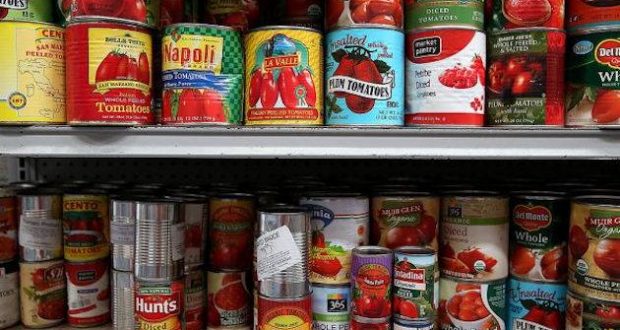Over 5.8 million people are no longer on food stamps since President Donald Trump completed his first month in office in February 2017, according to the new data by the U.S. Department of Agriculture (USDA).
The booming economy gets most the credit while tightened regulations requiring some able-bodied folks to work has also contributed to the decrease.
The data of the Supplemental Nutrition Assistance Program (SNAP), which came out on June 7, shows that in February 2017 there were 42,132,132 individuals participating in SNAP (pdf). This figure has since decreased to 36, 302,242 in 2019—showing a 5,829,890 drop in people on food stamps over that period.
In the same time period, the number of households dependent on SNAP decreased from around 20.8 million to less than 18.3 million—a drop of more than 2.5 million households.
The cost of the program also declined in the same time frame by over $880 million, from $5.2 billion to $4.4 billion.
Trump has tweaked the program a number of times, including curtailing waivers on work requirements.
The number of food stamp recipients has been dropping for four years, prompted by an economic recovery as well as welfare reforms at the state level. In Alabama, food stamp use fell by 85 percent in 13 counties after the state imposed work requirements for childless adults. In Georgia, 21 counties saw a significant reduction in food stamp recipients after the state restored the work requirement.
One of the Trump administration’s proposed changes to the program was the USDA Foods Package, a monthly parcel that would be given to about 80 percent of all current food stamp recipients. The so-called Harvest Boxes would include American-made, shelf-stable foods like milk, cereal, pasta, and canned produce. Some have compared the idea to meal-kit delivery company Blue Apron.
The parcels would account for half of the benefits, while the other half would be deposited to electronic benefit transfer cards, which are already in use. Since the government can acquire the food at wholesale prices, the proposal was expected to reduce the cost to American taxpayers by $129 billion over the next 10 years.
Trump has recently expressed that he doesn’t want immigrants coming to the country to live completely on welfare benefits. In a March 2019 interview with Breitbart News, the president said: “I don’t want to have anyone coming in that’s on welfare.”
“We have a problem, because we have politicians that are not strong, or they have bad intentions, or they want to get votes, because they think if they come in they’re going to vote Democrat, you know, for the most part,” he said.
The President said the country needs workers, not people who subsist on welfare.
“We owe a lot of money. We’re taking care of everybody in the world’s military. But now as you know I got over $100 billion from NATO countries. But that’s not enough, that’s not enough, we’re paying for massive portions of NATO. We shouldn’t be paying for this. They should be paying their own way, and we can help them, but we shouldn’t be paying for—and by the way, here’s a beauty. We pay for their military defense and then they take advantage of us on trade in addition. It used to be in order to have the trade we take care of them—but they get us both ways,” Trump said in an interview.
“But I don’t like the idea of people coming in and going on welfare for 50 years, and that’s what they want to be able to do—and it’s no good,” Trump said.
–EPTimes
 Metro Voice News Celebrating Faith, Family & Community
Metro Voice News Celebrating Faith, Family & Community 








